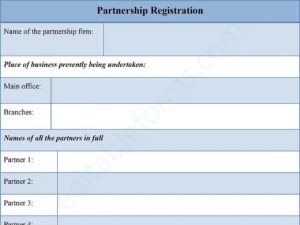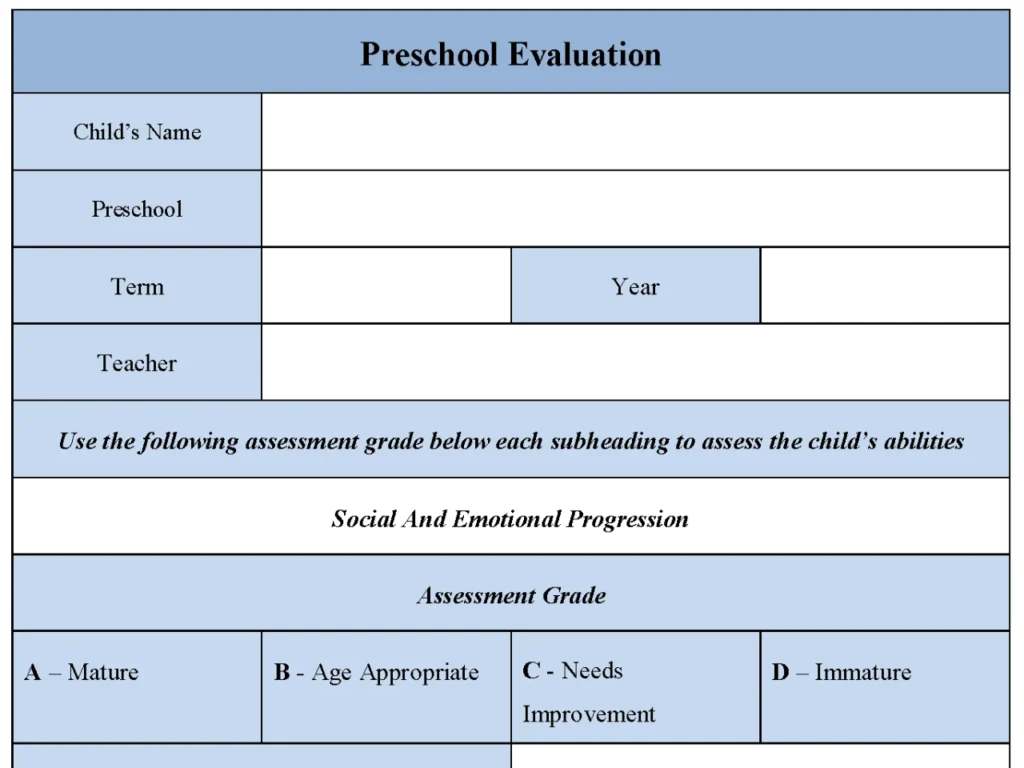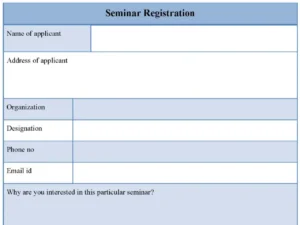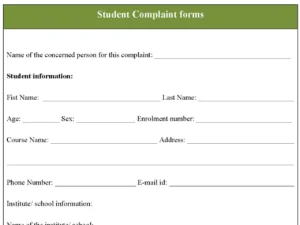The Preschool Evaluation Form is designed to assess a child’s developmental progress and learning needs. It includes sections for evaluating cognitive, social, emotional, and also physical skills. This form helps educators identify strengths and also areas for improvement, enabling tailored support for each child to foster their growth and also readiness for further education.


You can Download the Preschool Evaluation Form post; customize it according to your needs and Print. Preschool Evaluation Form is either in MS Word and Editable PDF.
Download Editable Preschool Evaluation Form for only $6.54
Buy Now: 6.54 USDIf you are having problems downloading a purchased form, please Contact Us and include your receipt number and exact name of the form you purchased and I’ll email you a copy.
Absolutely! We offer complimentary editing services for any purchased forms to ensure they meet your specific needs. If you require a brand new form, our team can design one tailored to your specifications at an affordable price.

Features
Comprehensive Skill Areas:
Assesses various developmental domains, including cognitive, social, emotional, language, and also physical skills.
Age-Appropriate Criteria:
Includes benchmarks and criteria that align with developmental milestones for preschool-aged children.
Observation Sections:
Provides space for educators to record observations and notes on each child’s behavior and also interactions.
Parent Input:
Often includes a section for parental feedback, offering insights from home environments.
Rating Scale:
Utilizes a standardized rating scale to evaluate the level of proficiency in each skill area.
Individualized Recommendations:
Offers suggestions for activities and also resources tailored to support each child’s development.
Confidentiality Statement:
Ensures that all information collected remains confidential and also used solely for educational purposes.
Benefits
Holistic Assessment:
Provides a well-rounded view of a child’s abilities, ensuring that all areas of development are considered.
Early Intervention:
Identifies children who may need additional support early on, allowing for timely interventions.
Informed Curriculum Planning:
Assists educators in developing lesson plans and also activities that cater to the diverse needs of their students.
Parent-Teacher Collaboration:
Fosters communication between parents and also teachers, promoting a collaborative approach to a child’s education.
Tracking Progress:
Allows for monitoring of individual progress over time, helping educators adjust strategies as needed.
Building Foundations:
Supports the establishment of a strong educational foundation, preparing children for future academic success.
Standardization:
Provides a consistent framework for evaluating children, ensuring fairness and also accuracy in assessments.













